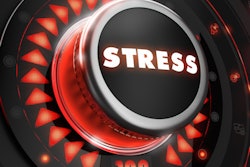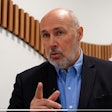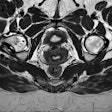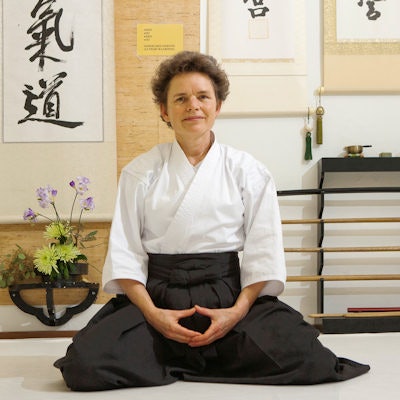
Stress at work is an increasingly common phenomenon, but radiologists still may not be recognizing the symptoms of burnout in both colleagues and themselves, according to expert speakers at today's Professional Challenges session at ECR 2019. Like all health problems, identifying issues early and taking appropriate action is key to the cure.
Symptoms of chronic stress occur in approximately half of all healthcare professionals, leading to diminished health and quality of life among the individuals themselves and also to concerns over patient safety, quality of care, patient outcomes, and the sustainability of healthcare systems, said Dr. Myriam Hunink, PhD, a professor of radiology and clinical epidemiology at the Erasmus University Medical Centre in Rotterdam, the Netherlands. Radiologists rank in the top 10 of medical specialists with burnout, and they tend to be among the least happy too, she noted.
In her presentation, she will highlight the main symptoms of burnout: emotional exhaustion; a detached, callous, cynical attitude; and a feeling of personal inadequacy.
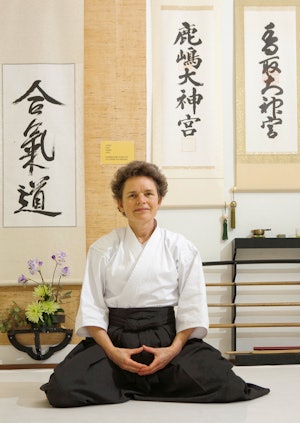 Dr. Myriam Hunink, PhD, meditates in her aikido clothes in the dojo.
Dr. Myriam Hunink, PhD, meditates in her aikido clothes in the dojo.Chronic stress and burnout are due to an imbalance between stress factors and resources, Hunink noted. Stress factors range from ambition, perfectionism, self-criticism, and constant electronic connectivity to interpersonal conflicts, employer demands, litigation, digitalization, complexity of care, and financial concerns. However, radiologists can be resourceful and use tools such as resilience training, healthy lifestyle, social support, meaningful activities, effective communication, and efficient work processes.
"To combat burnout among radiologists and radiographers, and thereby improve the quality of care, effective interventions are needed at both organizational and individual levels," she told ECR Today ahead of the congress.
In today's session, panelists and delegates discussed the signs and symptoms of chronic stress and burnout, the factors that lead to the problem, and preventive measures that can lead to active work engagement and well-being among radiology professionals. Hunink pointed to excellent information provided by the U.S.-based National Academy for Medicine.
"If there is one thing I hope delegates take away with them from the presentation, it's this: Be aware of the symptoms in yourself, your peers, and your employees -- and actively do something about it," she said.
Speaking about his own personal story, Dr. Markus Berger, chief of radiology at the Swiss Paraplegic Centre in Nottwil, revealed how a breakdown in the spring of 2012 presented as physical symptoms, including dizziness, when driving his car to work one morning. An MRI of the brain showed nothing abnormal, but the next day he began to swerve again in his car.
"Looking back now, I had been having problems sleeping for six months or so and waking up in the early hours with unstoppable ruminating thoughts. There had also been symptoms during the day, like occasional irregular heartbeats or eczematous rashes that I had never paid much attention to. I realized that I wasn't happy at work anymore and something had to change," he said.
Berger negotiated six weeks of part-time work, and used this period to recuperate at home and take long walks. He regained his balance and began to ride his bike again. He also underwent further cardiac and neurological tests, but despite the irregular heartbeat and dizziness, the results revealed no major abnormality. After the summer, Berger returned to full-time work, but still his sleep was disturbed and he didn't feel happy.
Fortunately, a colleague from outside of radiology told him about mindfulness-based stress reduction (MBSR) and suggested he tried it to relieve his symptoms.
"I was sceptical as it seemed wishy-washy, but I signed up. The first meeting was a shock: People sat on the floor, surrounded by candles. At each meeting, we did body awareness exercises that generated strange feelings and sensations. However, after four weeks, I started sleeping well again," he recounted.
According to Berger, mindfulness is an essential tool to live well, and he practices it in short 20-minute sessions alone every morning, concentrating first on breathing, then on separate body parts, then the body as a whole, gradually becoming more aware of the self. The idea is to be aware of actual present moment experience -- even if only for a few moments -- rather than dwell in the past, worry about the future, or mentally be elsewhere.
Importantly for him, he has been able to spot early symptoms in several colleagues and help them find similar programs.
"Burnout can happen to anyone, but there are ways to get out of it. The solution isn't complicated, but it's still difficult because you have to find or make the time in a busy schedule," he said.
For Berger, the eight-week MBSR group program was ideal, particularly because he could interact with other participants. Similar techniques also are available online or can be accessed via books and CDs.
Mindfulness is a possible fix for burnout or depression and can also serve as a preventive measure. Furthermore, it enables radiologists to live more consciously -- and, as a result, be better doctors. Studies have shown that mindful individuals concentrate better and are less inclined to jump to conclusions, he added.
Berger referred to a study in which participants were shown a video of two teams passing a ball between team members. Study participants had to count how many times one of the teams passed the ball, and then afterward they were asked if they noticed anything unusual in the clip. While participants gave near to correct answers about the number of passes, about half of them missed the huge gorilla that strolled through the group of players in the middle of the video.
This idea of busy radiologists missing a relevant finding because they are looking for something else is not new, but stress and the pressure to be productive play a big part in this, Berger noted. Mindfulness helps you see things you wouldn't necessarily notice when you are suffering, he said.
Originally published in ECR Today on 2 March 2019.
Copyright © 2019 European Society of Radiology




